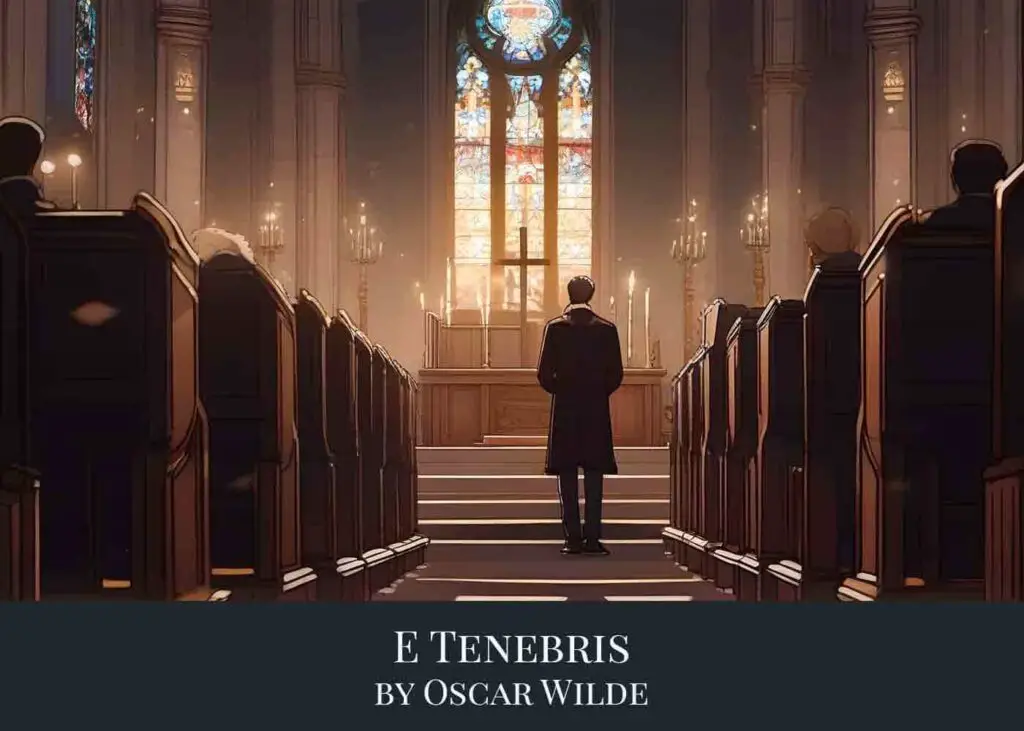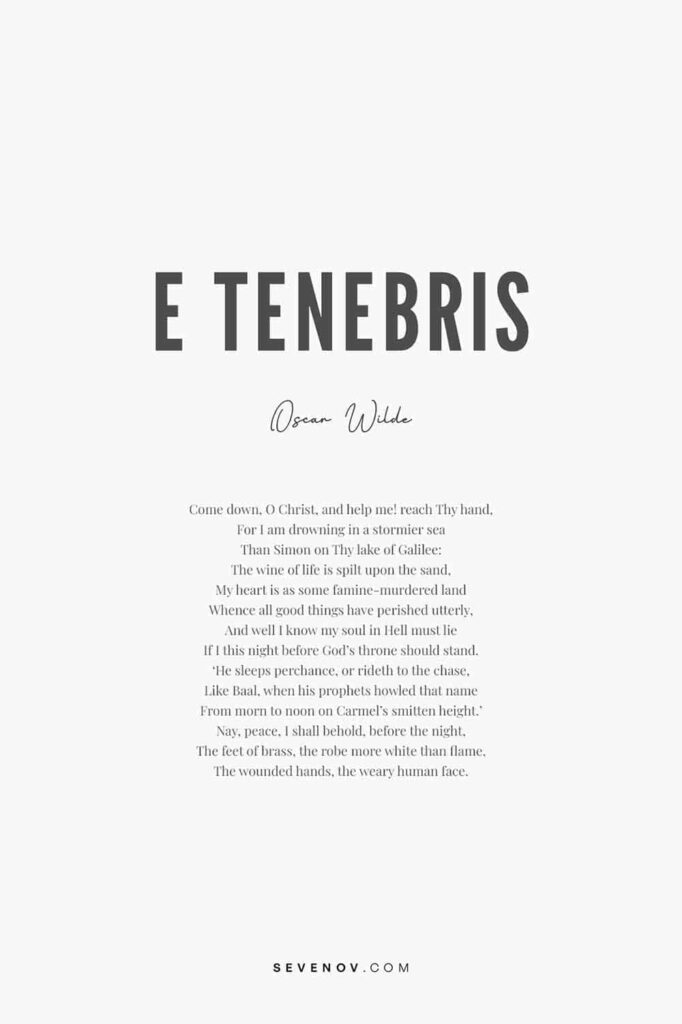
E Tenebris by Oscar Wilde
“E Tenebris” is a compelling poem by celebrated playwright, poet, and novelist Oscar Wilde, known for its raw emotional depth and vivid biblical allusions. Capturing themes of despair, hope, and the yearning for divine intervention, “E Tenebris” stands out in Wilde’s collection for its introspective and somber tone. It is featured in the book Poems, which offers a glimpse into the varied and rich poetic world of Wilde. Oscar Wilde’s Poems ebook is available online at PageVio.
1. The Poem
Come down, O Christ, and help me! reach Thy hand,
For I am drowning in a stormier sea
Than Simon on Thy lake of Galilee:
The wine of life is spilt upon the sand,
My heart is as some famine-murdered land
Whence all good things have perished utterly,
And well I know my soul in Hell must lie
If I this night before God’s throne should stand.
‘He sleeps perchance, or rideth to the chase,
Like Baal, when his prophets howled that name
From morn to noon on Carmel’s smitten height.’
Nay, peace, I shall behold, before the night,
The feet of brass, the robe more white than flame,
The wounded hands, the weary human face.

Size: 8″ x 12″ (2:3 ratio)
Format: PDF
Copyright information: For personal use only
Note: Actual poster background color is white. For the sample poster, the background is made gray for illustration purpose.
2. E Tenebris Analysis
“E Tenebris” is a powerful invocation for divine help and guidance, rich in biblical allusion and imagery. Let’s break it down:
Come down, O Christ, and help me! reach Thy hand,
This line is a direct plea for divine intervention. The speaker is in desperate need and is calling out to Christ for help.
For I am drowning in a stormier sea / Than Simon on Thy lake of Galilee:
The reference to Simon (Peter) on the Sea of Galilee (from the New Testament, where Jesus walks on water and calms a storm) suggests that the speaker’s troubles are even more overwhelming than those faced by the apostles.
The wine of life is spilt upon the sand,
This metaphor suggests that the richness and joy of life (symbolized by wine) have been wasted or lost (spilt upon the sand).
My heart is as some famine-murdered land
The speaker feels barren and desolate, like a land ravaged by famine.
Whence all good things have perished utterly,
This line reinforces the complete loss of hope and goodness in the speaker’s life.
And well I know my soul in Hell must lie / If I this night before God’s throne should stand.
There’s a sense of unworthiness and fear of judgment. The speaker believes they would be condemned if they faced God at that moment.
‘He sleeps perchance, or rideth to the chase, / Like Baal, when his prophets howled that name / From morn to noon on Carmel’s smitten height.’
This alludes to the biblical story of Elijah and the prophets of Baal on Mount Carmel, where Baal doesn’t respond to his prophets. It reflects the speaker’s fear that Christ might not respond to their pleas.
Nay, peace, I shall behold, before the night, / The feet of brass, the robe more white than flame, / The wounded hands, the weary human face.
Despite the despair and doubt, the speaker ends with a note of hope, believing they will eventually see Christ (described with symbolic imagery like “feet of brass” and “robe more white than flame”) and find peace.
The poem, thus, moves from a place of despair and doubt to a final assertion of faith, despite the overwhelming challenges faced by the speaker.
3. Conclusion
If “E Tenebris” appeals you, you might enjoy exploring this list of Oscar Wilde’s poems.




